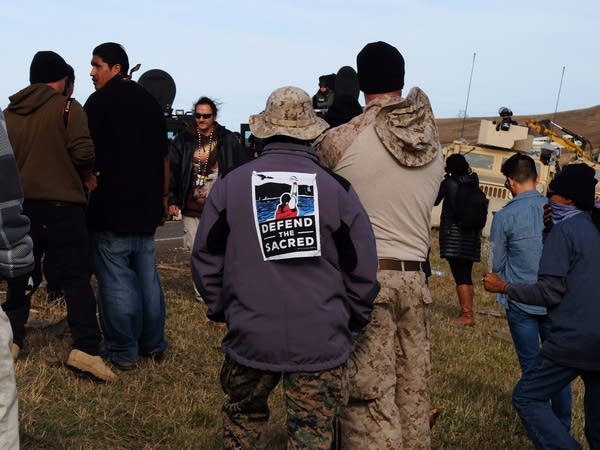Standing Rock protesters with connections to Wounded Knee on why they're there

Protesters near a roadblock on Friday, near Cannon Ball, N.D.
Dan Gunderson | MPR News
Go Deeper.
Create an account or log in to save stories.
Like this?
Thanks for liking this story! We have added it to a list of your favorite stories.


